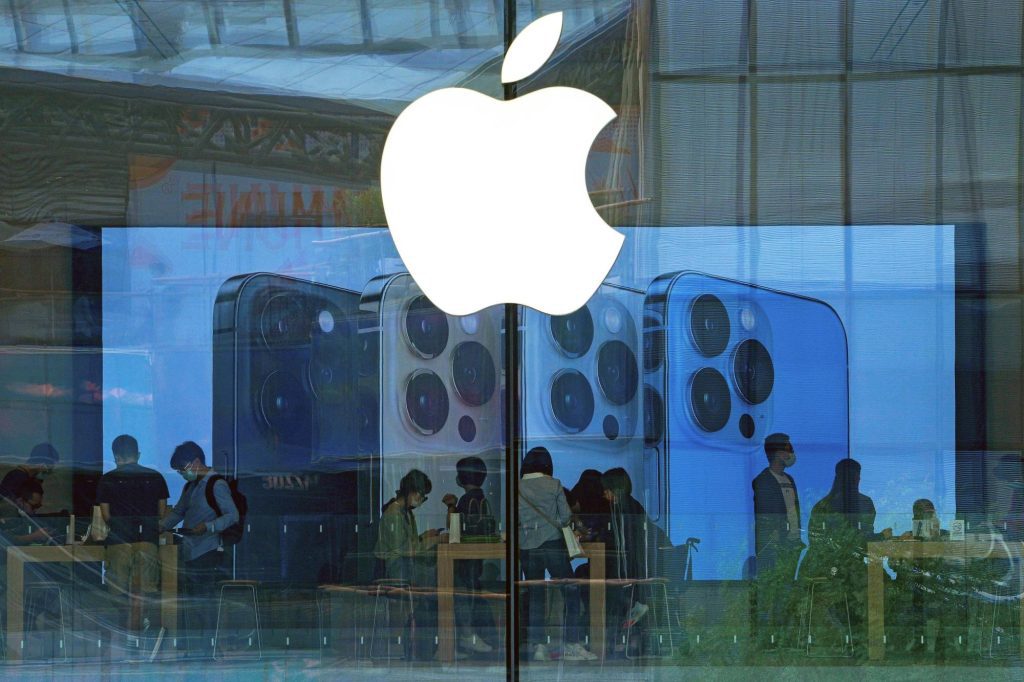By MICHAEL LIEDTKE (AP Technology Writer)
In a hearing, a federal judge inquired whether Apple has made it difficult for people to use alternative payment options in iPhone apps, despite a court order. The order aimed to provide more ways for consumers to pay for digital services.
Judge Yvonne Gonzalez Rogers and Apple's app store chief engaged in a debate, focusing on whether Apple is still directing U.S. consumers to its exclusive app payment system, going against the injunction intended to promote more choices and potentially lower prices.
The order from Gonzalez Rogers mandates Apple to permit app developers to show links to other payment options in addition to the company's own system in the U.S. Apple profits significantly from this arrangement, which imposes a commission of 15% to 30% on digital transactions within popular iPhone apps.
Another antitrust case against Apple is targeting its app store and commission structure, following a recent filing by the U.S. Justice Department. The case accuses the iPhone of restricting competition in various ways that hinder innovation.
During four hours of testimony from Matthew Fischer, the Apple executive overseeing the iPhone app store, Gonzalez Rogers often sounded frustrated and skeptical as she interjected at intervals.
The judge's questioning suggested that she is worried that Apple's efforts to comply with her order have been primarily focused on protecting the company's profits rather than making it easier for iPhone users to switch to other in-app payment options, as she intended.
Gonzalez Rogers was particularly direct as she interrogated Fischer about whether Apple intentionally made it more difficult and confusing for consumers to make digital purchases through alternative services.
The judge expressed skepticism about Apple's design of the alternative payment option system for iPhone apps, saying, “Other than to stifle competition, I can see no other answer.”
Fischer contended that Apple is following the judge's order while also trying to protect iPhone users from malicious internet actors and ensure a return on its investments in the app store and other mobile software.
To achieve this, Apple has introduced a new commission structure of 12% to 27% on digital transactions initiated from an app and completed using an alternative payment option. After Gonzalez Rogers suggested that Apple is still making a significant profit, Fischer stated that the company expects its effective commission rate on digital transactions processed by alternative payment options to be about 18%.
Fischer stated, “We are running a business.”
Apple spent more than two years attempting to overturn the order issued by Gonzalez Rogers as part of a broader antitrust dispute it won. The injunction, which requires Apple to allow links to alternative app payments, took effect in January after the U.S. Supreme Court declined to review the case.
Apple has only approved 38 apps out of about 2 million iPhone apps in the U.S. to display links to alternative payment systems so far. The judge asked Apple for the number of apps that engage in digital transactions, but Apple couldn't specify it.
Epic Games believes that the lack of interest in adding in-app links to alternative payment options shows that Apple is still unfairly favoring its own system.
Epic, known for Fortnite, is trying to push Apple to make more significant changes to allow alternative payment options after failing to convince the court in 2021 that the iPhone app store had become a monopoly charging inflated prices.
Facebook, Instagram, Elon Musk’s X service, Spotify, and Microsoft are backing this effort to challenge Apple's policies.
According to Epic, Apple's current alternative payment setup leads to excessive commissions for developers and prevents them from directing consumers to cheaper options for the same digital services.
Apple, in its pre-hearing briefs, accused Epic of attempting to get the court to interfere in its business to boost its own profits.
Apple argued that Epic is seeking access to and use of Apple’s tools and technologies without paying for them.
The court hearings will continue, with another Apple executive expected to testify. The judge hopes to conclude the hearings by May 17, but said it might take longer.









